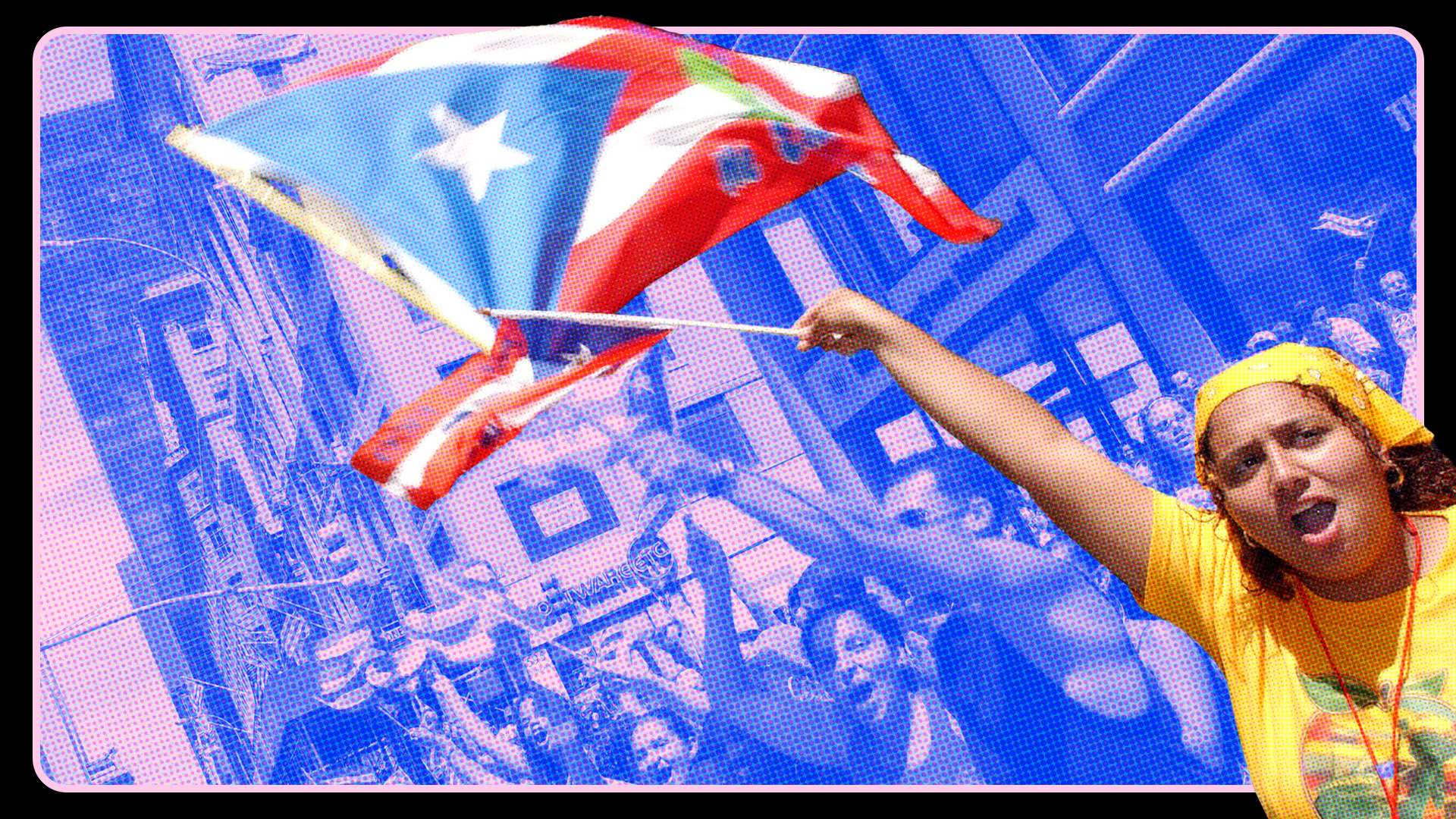Rosa Hernández knows all too well the painful and horrifying reality of living under a total abortion ban. In July 2012, her daughter Rosaura Almonte Hernández — also known as Esperancita — was diagnosed with Leukemia. After being admitted to a hospital, doctors also learned that Esperancita was seven weeks pregnant.
To save Esperancita’s life, doctors would have to administer chemotherapy treatments that would likely harm or terminate her pregnancy. In the Dominican Republic, where Hernández and her daughter lived, abortion is illegal in all circumstances, including when the life of the pregnant person is at risk. Women who terminate their pregnancies can face up to two years in prison, while doctors and midwives can face anywhere from five to 20 years.
For 20 days doctors contemplated how to proceed, fearing they would be arrested if they intervened. On Aug. 17, 2012, Esperantica died from hypovolemic shock.
“My daughter didn’t die — my daughter was killed,” Hernàndez tells a small group of abortion rights advocates gathered together in Las Vegas, Nevada. “My daughter was assassinated. But I became empowered. Something didn’t just happen to me. Something happened in me.”
Hernandez is one of three South American women who recently joined a Latinx storytelling tour across Nevada, Arizona and Florida — all states where citizens will have a chance to either expand or protect abortion access via ballot measures come November.
“We don’t need to imagine what a future under an abortion ban is like — we’ve seen the future,” Paula Avila-Guillen, Executive Director of the Women’s Equality Center (WEC), a reproductive rights organization that led the storytelling tour, tells me when I joined the tour in Nevada. “The future is, women end up criminalized for their miscarriages or stillbirths, doctors are unable to treat their patients, and women die.”
After the Supreme Court overturned Roe v. Wade, an estimated 6.7 million Latinas of reproductive age now live in the 26 states that have banned or are poised to ban abortion care, according to a recent analysis from the National Partnership for Women & Families and the National Latina Institute for Reproductive Justice.
According to one UCLA data brief assessing data from the U.S. Census Bureau’s American Community Survey, more Latina women of childbearing age live in states that ban or severely restrict abortion care than non-Hispanic white women.
An estimated 1.4 million Latinas of reproductive age currently live in Florida, where abortion is banned after six weeks gestation and before most people even know they’re pregnant. Arizona, where abortion is banned after 15 weeks, is home to an estimated 585,600 Latinas.
“We came to a country where we expected to live under better conditions — better health care conditions —- and we believed we could build a better life for ourselves and our families here,” Avila-Guillen, who immigrated to the U.S. from Colombia, says. “We definitely do not want life under an abortion ban to be the new reality in the United States.”
Because Latinx people are disproportionately impacted by abortion bans, WEC and other organizations — including Nevada Now, Planned Parenthood Mar Monte, Reproductive Freedom For All, Wild West Access Fund, Arizona for Abortion Access and Arizona List — were determined to harness the power of Latinx storytelling in an effort to galvanize voters who have the power to change the landscape of abortion access in their respective states.
“It is the power of community and storytelling that helps us keep each other safe,” Avila-Guillen adds. “That’s one of the most beautiful things about storytelling — while Latinos are not a monolith, a woman from El Salvador and a woman from the Dominican Republic share so much in common with women from Arizona and Nevada, Florida and Chile. Why? Because it all gets to the core of our humanity.”
In November, a record-breaking 11 states will have abortion-related initiatives on the ballot — all giving voters the chance to expand and protect access to abortion care. In Nevada, Question 6 will, if passed, enshrine the right to abortion in the state’s constitution. In Arizona, Proposition 139 will also amend the state’s constitution to “provide for the fundamental right to abortion.”
In Florida, a state with a near-total abortion ban and home to the third-largest Latinx population in the United States, Amendment 4 would establish that no law shall “prohibit, penalize, delay, or restrict abortion before viability or when necessary to protect the patient’s health.”
By relying on each other’s lived experiences and willingness to share those experiences with others — a long-established and vital part of Latinx culture that, for generations, has been used as a way to protect and preserve Hispanic history and identity — Latina women from countries with total abortion bans are sounding the alarm as to what can and will likely happen if abortion is not protected at both the state and national level.
Women like Christina Quintanilla, who in 2004 was convicted of aggravated murder and sentenced to 30 years in prison after she suffered a miscarriage. Eighteen and living in El Salvador at the time, Quintanilla was already a mom to her 3-year-old son when she was incarcerated.
“It was terrible,” Quintanilla says during the Latinx storytelling tour in Nevada. “I not only lost my freedom … I felt like I abandoned [my son]. I was detained at the hospital. When I woke up, I had handcuffs on me. I lost everything.”
After a four-year legal battle, Quintanilla was released from prison. She now lives in Georgia after fleeing her home country of El Salvador — where abortion is also illegal even in cases where the pregnant person’s life is in danger — and is in the process of seeking political asylum. “I am one of the survivors,” Quintanilla says.
While it may be easy for some to assume circumstances like Quintanilla’s or Hernandez’s are limited to South American countries, similar stories have already become part of the fabric of a post-Roe America. In Georgia, two Black women — Candi Miller and Amber Thurman — died after they were denied or unable to receive care due to the state’s strict abortion ban. In 2023, 19-year-old Celeste Burgess from Nebraska was arrested and sentenced to 90 days in jail and 24 months of probation for allegedly terminating her pregnancy via medication abortion.
In 2022, Lizelle Gonzalez — at the time Lizelle Herrera — was also arrested and jailed for allegedly self-inducing an abortion at 19 weeks gestation in Texas. Three days later, the charges were dropped.
“These stories — these are the stories that guide us,” Avila-Guillen says. “They remind us why we do what we do.”




















































